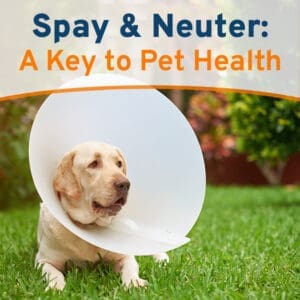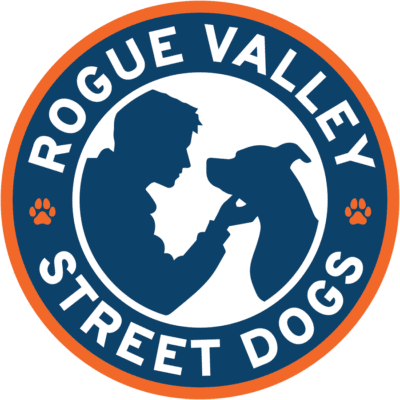 Spaying and neutering are often discussed in terms of population control, but did you know that these procedures also play a vital role in disease prevention for both dogs and cats? The benefits extend far beyond eliminating unwanted litters—they also significantly reduce the risks of disease in pets, enhancing their overall quality of life and potentially extending their lifespan. For pet owners living in poverty or unstable housing situations, access to free spay and neuter services can be the difference between a healthy, cared-for animal and one suffering from preventable illness.
Spaying and neutering are often discussed in terms of population control, but did you know that these procedures also play a vital role in disease prevention for both dogs and cats? The benefits extend far beyond eliminating unwanted litters—they also significantly reduce the risks of disease in pets, enhancing their overall quality of life and potentially extending their lifespan. For pet owners living in poverty or unstable housing situations, access to free spay and neuter services can be the difference between a healthy, cared-for animal and one suffering from preventable illness.
At Rogue Valley Street Dogs, we’re passionate about providing compassionate veterinary care and spay/neuter services to those most in need. Your donations help us deliver these life-saving procedures to pets whose owners may not have the means to afford them, ensuring that beloved animals stay healthier, longer. Here’s how spaying and neutering can reduce disease risks and why your support is vital.
Hormone-Driven Diseases: A Silent Threat
One of the key ways that spaying and neutering reduce the risks of disease in pets is by eliminating or drastically lowering exposure to hormone-related conditions. In female pets, spaying removes the ovaries and uterus, effectively preventing the development of uterine infections (pyometra) and significantly reducing the risk of mammary tumors. Pyometra is a life-threatening infection that often requires emergency surgery, while mammary tumors, 50% of which are malignant in dogs and up to 90% in cats, are far less likely to develop if a pet is spayed before her first heat cycle.
In male pets, neutering reduces the risk of testicular cancer and decreases the likelihood of prostate problems later in life. While prostate cancer itself is relatively rare in dogs, neutered males are far less likely to develop benign prostatic hyperplasia (BPH), a painful condition that can cause difficulty urinating or defecating.
Reducing the Spread of Contagious Diseases
Reproductive behaviors in unaltered pets often lead to higher exposure to contagious diseases. Intact males and females are more likely to roam searching for mates, increasing the chances of encountering other animals who may carry parasites or infectious illnesses. Cats that engage in territorial fighting are especially at risk of contracting Feline Leukemia Virus (FeLV) and Feline Immunodeficiency Virus (FIV), both spread through bites and close contact.
By spaying and neutering, animals are less driven by reproductive instincts to roam or fight, reducing their exposure to these potentially fatal infections. Keeping pets healthier also reduces the financial and emotional burden on their owners, who may be unable to afford advanced veterinary treatment for chronic illnesses.
Lowering Stress and Injury Risks from Mating Behavior
Mating-related behaviors in unaltered pets can put them at risk for stress-related illnesses and physical injury. Unspayed females in heat may become anxious, stop eating, or exhibit unusual behaviors that affect their immune system’s ability to fend off disease. Intact males may injure themselves attempting to escape from a yard or enclosure, be hit by vehicles while roaming, or get into aggressive encounters with other animals.
The stress of mating behavior also increases cortisol levels, which weakens the immune response and increases susceptibility to infections. Spaying and neutering eliminate the hormonal fluctuations associated with these behaviors, leading to a calmer, healthier pet.
Impact on Lifespan and Chronic Conditions
Statistically, altered pets live longer lives. According to the American Veterinary Medical Association (AVMA), spayed female dogs live 23% longer, and neutered male dogs live 18% longer than their unaltered counterparts. These lifespan extensions are linked to lower rates of infectious disease, cancer, and trauma-related injuries.
Additionally, pets that have been spayed or neutered are less likely to suffer from chronic conditions like diabetes, especially in females. Hormonal imbalances can impact insulin regulation, and by stabilizing hormone levels, spaying and neutering reduce the risk of these complications.
Addressing Disease Prevention in Underserved Communities
For pet owners living in poverty, the financial cost of veterinary services is often out of reach. Unfortunately, this leaves many animals unaltered and vulnerable to disease. In communities struggling with housing insecurity, untreated infections or preventable cancers can be a death sentence for a beloved pet.
That’s where Rogue Valley Street Dogs steps in. By offering free spay and neuter procedures, we help ensure that pets belonging to low-income individuals receive the same disease-prevention benefits as those in more affluent households. Our services reduce the risks of disease in pets while giving their human companions peace of mind and emotional support.
We work in partnership with The Street Dog Coalition to bring mobile veterinary clinics to vulnerable populations throughout Southern Oregon, where licensed vets perform spay/neuter surgeries, administer vaccines, and provide general health checkups. These initiatives are fully funded through donations from compassionate individuals like you.
Your Donations Make a Life-Saving Difference
Every dollar you give to Rogue Valley Street Dogs helps a pet avoid painful, life-threatening diseases. Spay and neuter procedures not only reduce the risks of disease in pets—they also reduce the number of unwanted animals entering shelters, many of whom are already in poor health due to lack of care.
Your support ensures that no one is denied access to preventive veterinary care simply because they’re experiencing financial hardship or homelessness. Together, we can create a community where all pets—regardless of their owners’ income—are healthy, loved, and protected from disease.
Whether you give once or become a monthly donor, your contribution is a direct investment in the health and safety of animals that need us most. Please visit RogueValleyStreetDogs.org to make your donation today. Your compassion can help us continue to reduce the risks of disease in pets and make a real, lasting impact in our community.

Reader Interactions